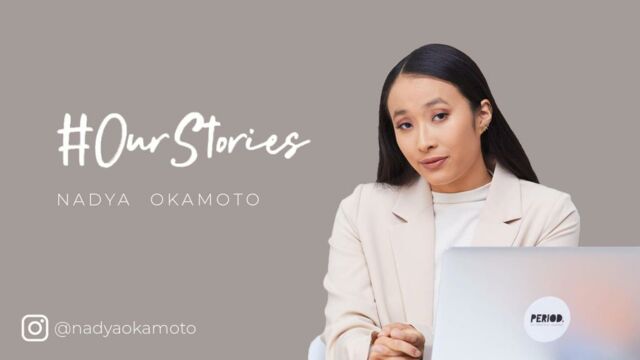Periods. There’s no need to lower your voice, even the one in your head. Given that half of the world menstruates, it’s a shocker that most of us automatically begin to whisper when talking about a cycle that is so incredibly natural. Why whisper, when we can roar? Slowly, but surely, tiny murmurs and hushed words have been transforming into powerful voices, and it’s all thanks to the period positivity movement.
Discover our latest podcast
Tracing the movement back to one person, place or time is virtually impossible because so many women have laid down the foundation to build what we know as period positivity today. From Chella Quint, founder of Period Positive, who first coined the term ‘period positivity’ in 2006 to poet Rupi Kaur, who shook the internet with her free-bleeding photograph in 2015. The movement has always been about removing the taboo on menstruation and normalising conversations around menstrual health.
But more than that, the movement aims to put an end to period poverty by making period care products accessible, safe, and sustainable for every single menstruator. In a society where all of these necessities have been put on the back burner for hundreds of years, it’s hard to imagine where to begin. But, it is possible, and Nadya Okamoto is living proof of that.
Squashing the stigma
Nadya has been squashing the social stigma around periods from the age of 16, and has been unstoppable since. She uses her Instagram page as a platform to educate and empower menstruators to become comfortable with their periods and question themselves about all things period-related. For Nadya, there are no taboos: she proudly waves her bloody tampons for the world to see and discusses how menstrual leave can be a double-edge sword.
Nadya first learned about period poverty when she was collecting stories from menstruators who were using anything and everything, from socks to grocery bags and toilet paper, to get through that time of the month. Upon hearing these stories, Nadya decided to take action.
While most of us were busy trying to navigate going to the pool on our periods, Nadya spent her teenage years educating herself, and countless others, about menstrual inequity and period poverty in the United States. She founded PERIOD, an organisation that has been working towards ending period poverty and stigma. In 2018, Nadya published her first book, Period Power: A Manifesto for the Menstrual Movement where she talks about ‘why we can no longer silence those who bleed.’
Nadya’s work has always been concentrated around hearing, helping, and connecting with members of the community, and that intention has only amplified through her latest venture, August.
Reimagining periods with August
In 2020, Nadya co-founded August, a period lifestyle brand that is working to ‘reimagine periods.’ Pushing the envelope even further, August is also redefining who belongs to the period community, as a means to make it more inclusive and realistic. Nadya said:
When talking about period positivity, it’s very important to understand that our activism must be inclusive—not all women menstruate and not all menstruators are women. When working to destigmatise menstruation, we must ensure that no one is left out, discriminated against, or marginalised.
August may be a for-profit business, but the heart and core of the brand lies with the community, and Nadya is adamant to keep it that way.
For us, our commitment to community, and serving the needs of our diverse community, was our priority. And we didn’t and won’t ever compromise on that.
With August, Nadya is giving the power back to the people. By engaging and listening to menstruators and their stories, her team has been developing a brand that accurately reflects the needs of the community. This includes creating period care products that are sustainable and most importantly, waste-free.
Sustainable period care products
In the United States, around 12 billion pads and 7 billion tampons are thrown out every year. In the UK, 200,000 tonnes of waste is generated from existing period care products. It takes anywhere between 500 to 1,000 years for a single tampon to decompose. Why? Because tampons and pads are primarily composed of plastic. In fact, a pad is made up of 90% of plastic, the equivalent of four plastic carrier bags. Given that the average menstruator will use and throw away more than 10,000 sanitary products in their lifetime, these products play an important role in plastic pollution.
So, the need of the hour? Giving the community more sustainable options, so they can actually have control over their menstrual footprint. With August, Nadya is trying to tackle this issue.
However, creating inclusive, sustainable period care products that are accessible and affordable is not that easy. Nadya explained:
I think that a challenge with more sustainable products is that they often come at a premium price. I started my work in the period advocacy space wanting to fight for period products to be more accessible. An unfortunate reality with any company is that we need to make sure we cover costs of being able to afford the best organic cotton and ensure that we have an ethical supply chain from start to finish as well.
So, while non-profits like PERIOD, continue to fight for free and accessible period care products, Nadya is on a mission to add sustainable options to the market that users will genuinely love and appreciate.
It’s been over a year since Nadya first launched August, and her brand is hitting a huge milestone next month. They’re finally releasing their first line of disposable period products that are ‘more sustainable and ethically-made.’
Nadya concluded:
I’m really excited to be able to bring more sustainable versions of these period products into the market, with a hyper-inclusive and community-centered brand.















